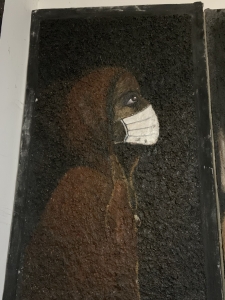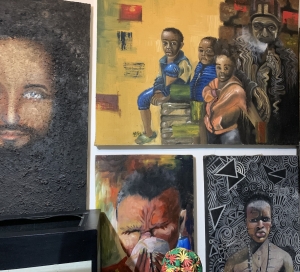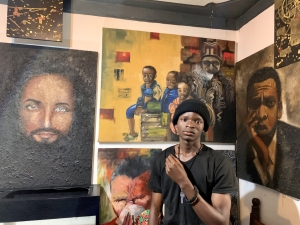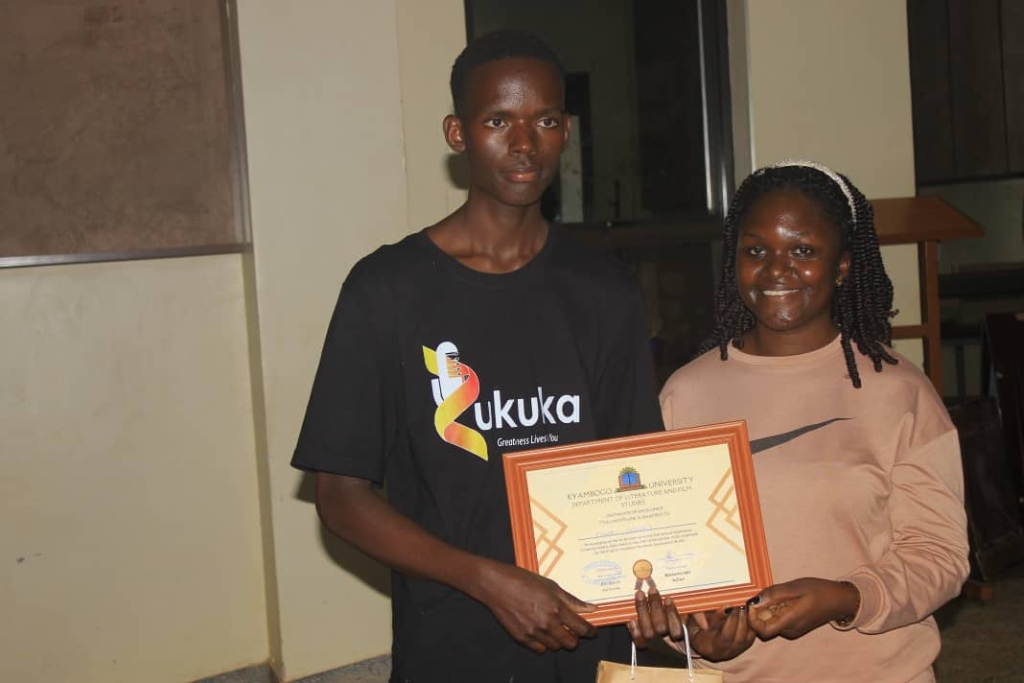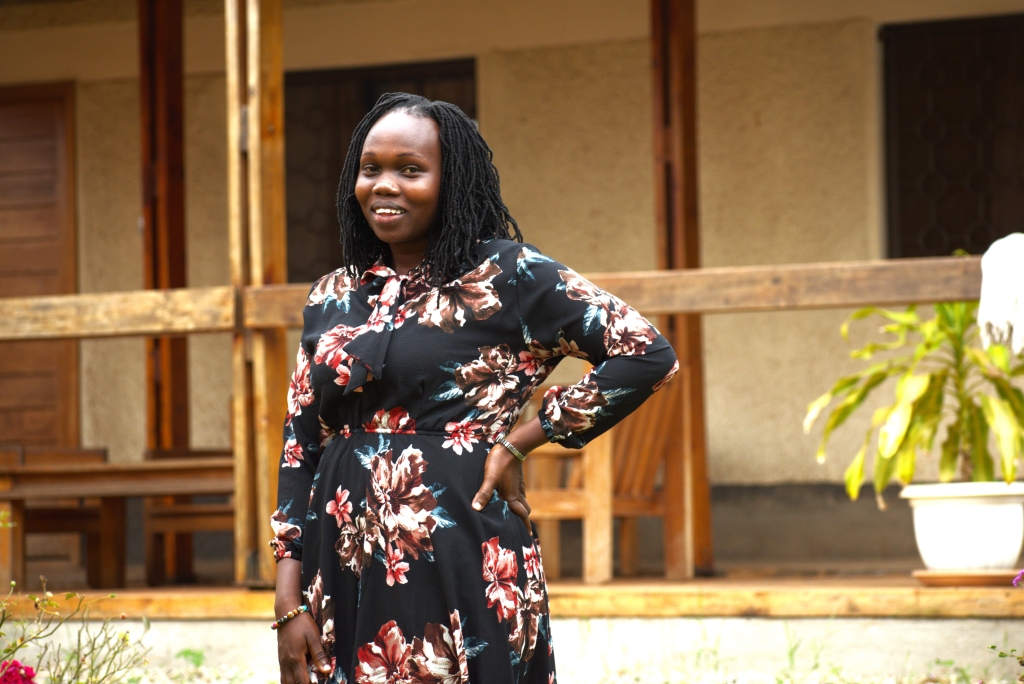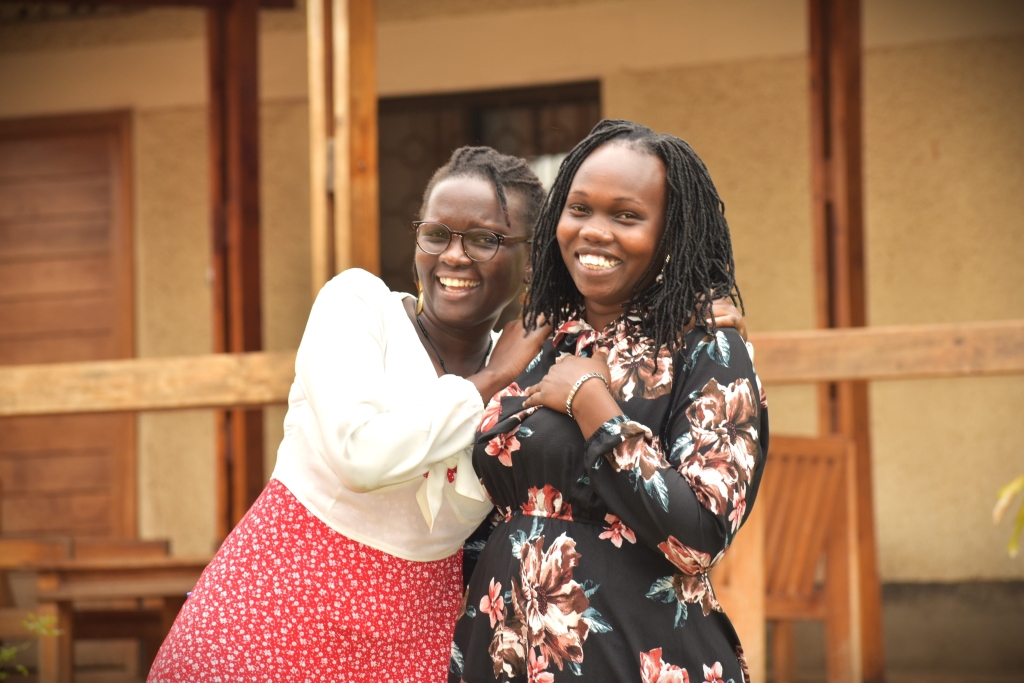Achan Agnes Aida’s Journey with MPI
Achan Aida Agnes alias Modello Agnes, a social worker at Meeting Point International (MPI) is one of the longest-serving employees of MPI. Her workmates call her ‘Mother ’not only because of her experience with MPI, the women, and Rose Busingye (the executive director of MPI) but also her never-ending loving guidance about work and life in general.
I was always intrigued by Agnes’ approach to discourses within the MPI sphere. The way she talked in the meetings of the MPI women and also the staff meetings expressed expertise in her profession backed up by a rich life experience. When I talk about ‘experience’, you must imagine a bed of roses. I thought so too until she took me down memory lane to her cradle land.
Agnes who was living in northern Uganda by that time was abducted by Kony rebels in 1997. Her life with her husband and their three children would be disrupted for the next three years. “I remember when the rebels ransacked my village and held many of us captive,” Agnes said. “We were made to carry food looted from our own families to the border of South Sudan (then Sudan) and Uganda.” She proceeded.
Showing me the scars on her arms, Agnes said, “Look at how they cut me to punish me for trying to escape from the rebel camp. A month after our abduction, we were brought back to our own village to commit atrocities. They made us burn houses, Kill and abduct children. On top of those who escaped from the rebel camp ratting us out to our village mates, the village mates themselves saw us do these terrible things. Honestly, I did not want to do what I did. I did not know how to explain to anyone that I was just trying to survive because the moment you did not obey a command, that was the end of you.”
With an aura of melancholy, Agnes proceeded, “Death in the camp was not far. If you wanted to die a fast death, you only had to complain about thirst or hunger and you would be sent to your heavenly father. We used to carry boiling food on our heads from Kitgum to Gulu, Apach, etc. while destroying property, killing and abducting people. Life in the rebel camp became normal to us. You simply had to be alert and ready to fight if you got ambushed by UPDF government troops. The UPDF troops would bomb us randomly from their helicopters when they found out where we were.
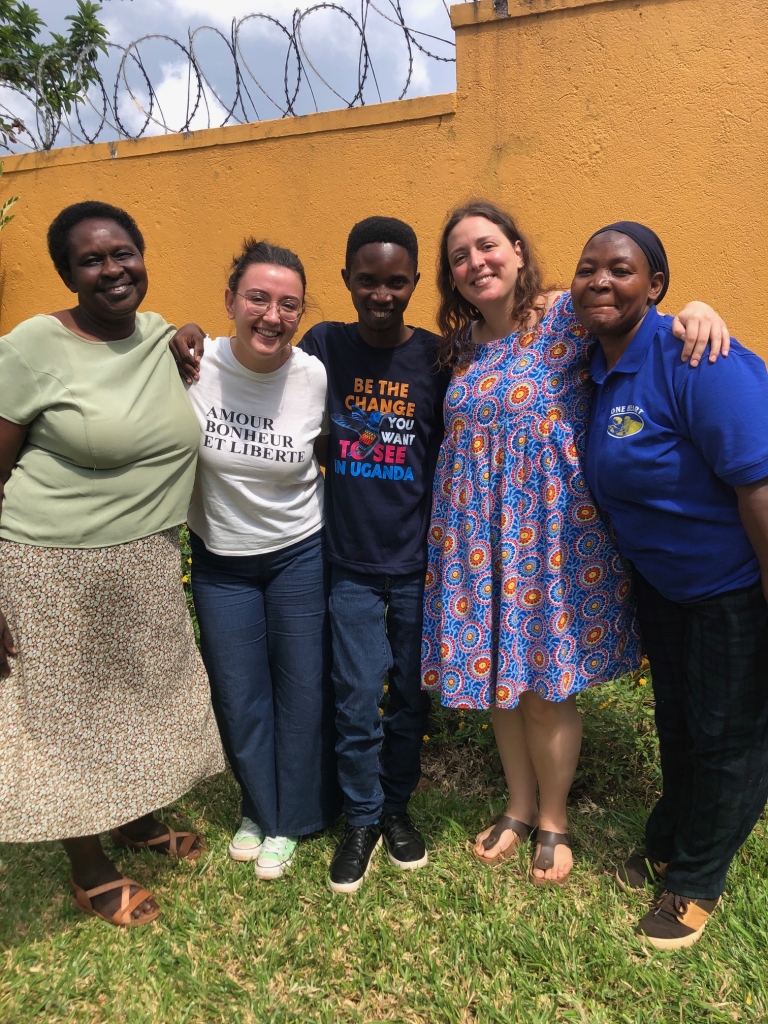
My life started taking a turn when we got ambushed by UPDF troops during a rebel operation in Gulu. I was sickly at the moment and we had walked for six kilometres from Sudan. We put up a fight from 11:00 p.m. to 5:00 a.m. guns blazing. My body gave way because I was too sick to fight yet we never had medicine in the bush. The rebels would give us some leaves to chew on if they had some mercy. Otherwise, we were expected to heal miraculously. That was the time I surrendered and handed over my gun to the UPDF troops.”
After handing herself over to the UPDF troops, Agnes was taken to an organization called GUSCO that was offering relief to victims of the Kony rebel activities. She finally got some rest from her apprehensive three years in the bush. All seemed fine until Agnes was taken back to her village only to be rejected by her own people. “They could not allow an ex-rebel to be part of them again,” said Agnes. “My husband prevented my children from coming next to me,” she continued. It was unbearable for Agnes to live with her people so she decided to come and live with her Auntie in Kampala hoping she would be safe. To Agnes’ dismay, her auntie had already been briefed on her past life and she treated Agnes exactly like the people back home in northern Uganda. Agnes’ sickness was worsening by that time. She tried to get some work to do around Naguru where she was living with her auntie but her efforts were in vain. “I one time did some work for a certain lady and when it was time to pay me, she said she could not pay a rebel that would kill her,” said Agnes as she made herself comfortable in her seat.
“I was too depressed to the extent that I chose to change my name. I was never Agnes. I was Aida Achan. I thought changing my name to Agnes would help me get rid of my haunting background. Nothing was working. After I had coughed terribly one night, my auntie carried me from the main house and took me to a cottage outside where I stayed for a while. They did not want to touch me or come close to me. My food would be put by the door. I contemplated suicide in those dark hours,” Agnes said.
One day, a social worker from MPI visited Agnes. Agnes would later meet Rose Busingye who would shine some light on her dark life. The next time the social worker came, she came with Rose Busingye. “ After I had told Rose my story, she did not judge me. She asked to take me to the hospital but I was hesitant because I knew I could not afford the bills. Even when she offered to pay all my bills, I still declined the offer because I was not sure anyone would be with me in the hospital for the time I would be there.” said Agnes.
Smiling, Agnes proceeded, “I later accepted to be taken for a check-up at Nsambya Hospital where Rose was working at that time. I was found to be having Tuberculosis. Rose would visit me every day in the hospital bringing me food. When I got well, I did not know where I would stay because I could not go back to my auntie’s place. Rose picked me up after I had been discharged from the hospital and took me to a house she had rented for me. The house had a mattress in and it was just good enough for me.
I started to suspect Rose had an agenda because she was too good to be true. I had experienced too much hate from the people I least expected so It was hard to believe in love again. I asked myself, ‘How is a stranger able to show so much love to me like this?’ I made up my mind to ask for 20,000 from Rose so that I could go back to my hateful home in northern Uganda. Rose looked at me for about fifteen minutes without saying a word. Later she said to me, ‘Agnes, I simply love you. Not because of anything but because you have a value.’ My mind could not comprehend what value she was talking about. I wondered what value an ex-rebel would have to anyone. My own family had disowned me so what kind of fallacy was I hearing?
The women of MPI would come and visit me once in a while. It took me a long time to believe what was happening to me. One day after several invitations by Rose, I decided to visit MPI Naguru. The happiness I encountered was unbelievable since I had expected to find sad people like me. What perturbed me the most were the similarities in our stories. They had gone through what I had gone through and worse. I continued attending the meetings.
Later Rose introduced me to Community School where I was even more shocked. I remember that day we were studying Luigi Giussani’s book, ‘The Religious Sense’. Everything they were speaking about honestly depicted me. I thought Rose had told people my story yet it was not so. I did not attend community school again for a while but when I went back, they spoke about freedom and I was challenged. I began to see a reason to get myself out of the cage I had locked myself in.”
Because of this companionship, Agnes shared with Rose about her three children that she had left in Northern Uganda with their father since she was not allowed to associate with them. After getting legal documents from the police, Rose sent the social worker who first visited Agnes when she was bedridden to bring the children to Kampala. The children were put in school on their arrival to the capital.
“My husband later visited me on the pretext of seeing the children but I was so angry at him because of how he had treated me. The education I had gotten from Rose could not allow me to harbour my bitterness. Rose told me to look at him as the human being he is and not to judge him. I later forgave my husband and we started to live as a family together. We later got our fourth child who is now at university.” said Agnes excitedly.
Sighing deeply, Agnes said, “I have learned that our journey to self-discovery does not happen overnight. It takes time. I am also convinced beyond doubt that love is the greatest medicine. Taking drugs with no one smiling at you is insufficient, you can not respond as you should.”
Written by Vancy Tomson.

